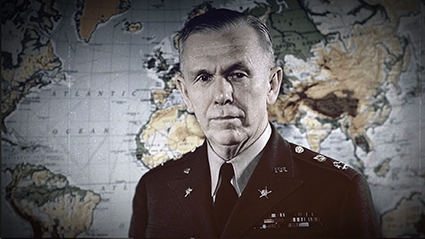America Needs a New Economic Plan for Eurasia
Op-Ed
One of the major reasons behind the US success in the Cold War was its military superiority. However, since no direct military confrontation with the Soviets took place, American economic power, arguably, had a quieter but much larger impact on Washington's ability to counter Moscow. One thing is an economic preponderance, yet another is the correct application of it to prop up your vital interests around the globe. An economic plan similar to the Marshall Plan would benefit much the arc of states – Georgia, Ukraine and Moldova - around Russia.
The US politicians of the past had a more concrete view of the threats the country faced following World War II. One might argue that the Soviets represented a more acute and immediate threat to Western Europe, and the US itself, than nowadays China and Russia together. However, as many modern economic and military trends show China's ascendancy is of a more fundamental (long-lasting) nature where the country's economic, technological and military might exceed the Soviet capabilities.
The US leaders of the 20th century also had a clear ideology. It has been always difficult to convince the American public that its forces should get involved in far flung Eurasian lands. To sell the American military involvement abroad it was important to cover this in lofty civilizational ideas which refuse geopolitical stratagems and promote democratic values and universal freedom. This is not to negate that Americans only thought in lofty terms. The US phenomenon was that never before in world history (perhaps except for the golden age of the Roman Empire) were so many geopolitical interests corresponding to the country's civilizational mission around the globe. For Americans, peace around the globe equated to the spread of democracy so much so that one scholar at the end of the Cold War stated that the end of history is happening because American ideals won globally.
To achieve this victory, the American leaders of the Cold War (which in itself was spectacular fortune to have an unending row of such excellent leaders) understood that the countries prone to Soviet influence can be stopped not only by direct American military aid, but through economic measures too.
Economic help meant the development of a country. The American leaders also understood that since the appeal of the Soviets was little more than military, the US ability to woo various states is contingent upon financial largesse pumped into state institutions and the development of economies.
The American leaders of the past often acted on principle and out of geopolitical interests. The Korean War (1950-1953) is one of those examples when the US acted to show that any encroachment on a sovereign state's territory would be punished.
One could imagine how a new comprehensive economic plan would strengthen the arc of states around China or Russia. To contain both militarily requires large resources and it is likely that the US would not be able to do that in the long run. However, an economically propped up Georgia, Moldova, Ukraine would be no match for Russian resources, while in regards to China's arc of neighboring states, a mixture of military and economic measures would be more relevant.
A parallel can be drawn with the famous Marshall Plan which aimed to resurrect post World War II Europe economically. The major argument here was that the Soviet economic system would not be able match American potential. An economy that was invulnerable to the Soviet stratagems.
It is important to understand that a major advantage of modern Russia in regards to small neighboring states is those same countries’ internal (primarily economic) weakness. This has generally been one of the major reasons why a duchy around Moscow rose to prominence in cold northern Eurasia and managed to incorporate/invade large surrounding territories.
Economic aid to propel Ukraine, Georgia and Moldova to internal stability would mean minimization of Russian influence. But the decision to pull this off rests upon the US political decision-makers, who need to have a comprehensive approach towards Eurasia. Post WWII US history serves as a good example to imitate: policies based on principle at times might serve as bigger incentives to keep peace than pure geopolitical models.
By Emil Avdaliani
Image source: history.com











